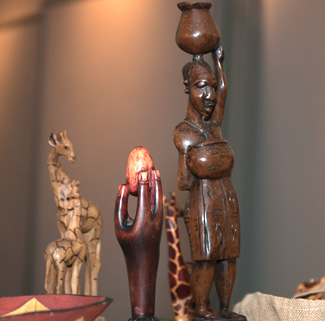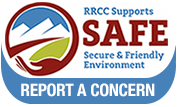Programs and Development Opportunities
UPCOMING EVENTS
FACULTY & STAFF PROFESSIONAL DEVELOPMENT
Dream Zone (serving the undocumented student community)
Undocumented students face many barriers in higher education, not the least of which is stigma attached to their citizenship status. This training will provide you with the tools and resources to better serve our undocumented students and help you to become a better ally to this community of learners.
Next training date and time TBD
Safe Zone (serving the LGBTQIAA2S+ community)
The purpose of Safe Zone is to raise awareness of ways homophobia, transphobia, and heterosexism affect everyone and to explore ways Allies can support the LGBTQ community. The Safe Zone symbol is a message to lesbian, gay, bisexual, transgender, and queer or questioning (LGBTQ+) students and colleagues that you have knowledge of LGBTQ issues, are supportive, and are trustworthy. People will know they can come to you for help, advice, or just to talk with someone who is supportive of their sexual orientation or gender identity. The next Safe Zone training will take place:
Next training date and time TBD
DEIB Book Club
Each fall and spring semester we select a book to read and discuss based on identitfied learning needs for college employees. In fall 2024, we will be reading Dr. Gina Ann Garcia's Transforming Hispanic-Serving Institutions for Equity and Justice.
A registration link will be forthcoming.
RRCC Community of Belonging Development Series
This development series will increase knowledge, awareness, and skills regarding equity, diversity, inclusion, and belonging concepts and practices that can support and affirm the success and identities of students and employees. The curriculum will be delivered in a hybrid format, with participants coming together in person as well as completing additional coursework online to supplement the in-person sessions. There are currently six modulesin the current iteration of this foundational series. Please refer below for the description of each workshop and the corresponding learning outcomes.
Outcomes of Community of Belonging (CB) Development Series:
- Provide employees with knowledge, skills, awareness, and resources to create and maintain an inclusive, welcoming, and equitable environment.
- Develop leaders across multiple divisions and departments at RRCC who advocate for equitable practices, policies, and environments.
- Implement practices in the roles of RRCC employees to equip them with using equity in decision-making, in professional development, and in service.
Fall 2024 registration link will be forthcoming.
Workshop Descriptions
Exploring the foundation (2 hours)
The purpose of this development series will be covered during this first workshop to provide participants with a comprehensive understanding of changing demographics, addressing the equity gap, and creating welcoming and inclusive environments. Participants will explore connections between and commitment to equity and RRCC and examine the concept of inclusive leadership. Participants will explore and define common language and begin to reflect on their professional and personal contributions to diversity, equity, and inclusion.
Outcomes:
- Understand the concept and commitment of RRCC to equity.
- Identify strengths and improvements of Inclusive Leadership.
- Identify changing national and Colorado demographics at community colleges.
- Connect the concept of diversity to leadership and interactions.
Social Identity Awareness (2 hours)
Participants will explore social identities of themselves and others (gender, class, age, race, nationality, sexual orientation, gender identity, ability, and religion). They will also discuss how social identity and perceptions of those identities impact the work environment and interpersonal interactions in the workplace.
Outcomes:
- Understand social identity and group membership associated with each.
- Examine social messaging and how it impacts the work environment.
- Identify how the cycle of socialization impacts individual perceptions and assumptions and how to interrupt the cycle.
Inclusive Conversations (2 hours)
This workshop will examine language that is oppressive and can unintentionally be harmful to individuals from historically marginalized identities. Participants will learn about microaggressions and gain strategies of best practice to engage inclusive conversations.
Outcomes:
- Educate participants on best practices when using inclusive language.
- Build knowledge of microaggressions and their hidden power structure and assumptions.
- Understand the difference between a person’s intent versus the impact it may have on an individual or an organization.
- Create strategies to engage in more inclusive conversations.
Implicit Bias (2 hours)
This workshop will allow participants to understand the concept of implicit bias and examine how implicit bias influences decisions, guidelines, and interactions with students and colleagues. Participants will have the opportunity to examine strategies to interrupt bias particularly in decision making.
Outcomes:
- Explore the concepts around unconscious/implicit bias and its formation.
- Examine one’s own background/experiences and biases and how they influence perceptions and behavior.
- Identify the differences between stereotyping, bias, and prejudice.
- Identify skills needed to interrupt unconscious/implicit bias.
Exploring Systemic Oppression and Critical Race Theory (2 hours)
During this workshop participants will have the opportunity to learn about the historical oppression experienced by different groups and understand the present-day indicators of common isms such as racism, sexism, homophobia, & xenophobia. Participants will also learn about critical race theory in higher education. Participants will then have an opportunity to think critically about their individual contributions to oppression and gain strategies to combat systemic oppression.
Outcomes:
- Understand and identify different isms that impact groups.
- Analyze how different isms have contributed to oppressive systems and structures in higher education.
- Examine how members of dominant groups benefit from oppressive structures.
- Identify strategies from Critical Race Theory to examine and analyze RRCC policies, processes, and practices.
Equity in Action (2 hours)
This workshop will empower participants to use the equity impact assessment to implement change and embed equity-mindedness in their roles. Participants will have the opportunity to practice navigating difficult but productive and effective conversations with their colleagues by identifying equity detours in order to create and maintain welcoming, equitable, and inclusive environments.
Outcomes:
- Understand and demonstrate action techniques that will address and interrupt exclusive and oppressive behaviors.
- Identify strategies to respond to equity detours and dialogue blockers when trying to create inclusive environments.
- Create personal action plans with specific tools individuals will use in their work with others.











